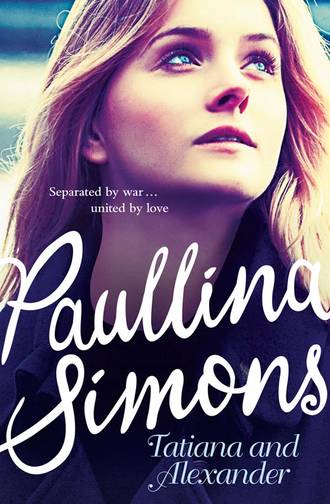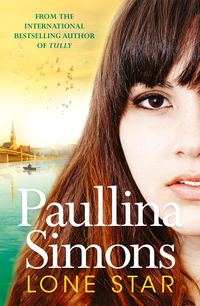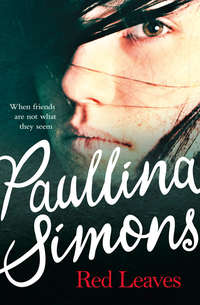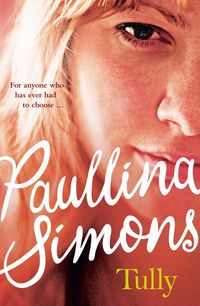
Полная версия
Tatiana and Alexander
“Major!” That was Morozov. The voice was less kind. The vodka, however, had been drunk by both men. Alexander smiled. If he kept them in the classroom drinking, they’d be leading him to the Soviet-Finnish border themselves, talking to him in soft English. They called him major. Alexander understood the psychology of rank extremely well. In the army there was only one rule—you never spoke rudely to your superiors. The pecking order was precisely established. “Major,” Morozov repeated. “Stay right here.”
Alexander returned to his chair.
Mitterand spoke to the young guard by the door; Alexander didn’t hear the individual words. He understood the essence. This was not only out of Morozov’s hands, this was out of his league. A bigger fish was needed to deal with Alexander. And soon the fish would be coming. But first they were going to try to break him.
“Put your hands behind your back, Major,” said Morozov.
Alexander threw his cigarette on the floor, twisted his foot over it, and stood up.
They relieved him of his sidearm and his knife and pillaged through his rucksack. Having found bandages and pens and her white dress—nothing worth removing—they decided to take Alexander’s medals off his chest, and they also tipped his shoulder bars and they told him he was not a major anymore and had no right to his title. They still hadn’t told him the charges against him, nor had they asked him any questions.
He asked for his ruck. They laughed. Almost helplessly, he glanced at it once, in their hands, knowing Tatiana’s dress was there. Just one more thing to be trampled on, to be left behind.
Alexander was taken to a solitary concrete cell with no window, no Ouspensky, no Maikov. He had no bench, he had no bed, and he had no blanket. He was alone, and his only sources of oxygen came from the guards opening the door, or from opening the sliding steel reinforced window on the door, or from the peephole they peered at him through, or from the small hole in the ceiling that was probably used for poison gas.
They left him his watch, and because they didn’t search his person they did not find the drugs in his boots. He had a feeling the drugs were not safe. But where to put them? Slipping off the boots, he took the syringe, the morphine vial and the small sulfa pills and stuffed them in the pocket of his BVDs. They would have to search more thoroughly than they usually did to find them there.
Bending reminded him of his sharply throbbing back, which, as the day wore on, felt as if it were swelling and expanding. He debated giving himself a morphine shot, then decided against it. He didn’t want to numb himself to what was about to come. He did chew one of the sulfa tablets, bitter and acidic, without crushing it, without asking for water. He just put it into his mouth and chewed it, shuddering with the swallow. Alexander sat quietly on the floor, realizing they couldn’t see him because it was so dark in the cell, and closed his eyes. Or maybe they had remained open; it was hard to tell. It didn’t matter in the end. He sat and waited. Had the day gone? Had it been one day? He wanted a smoke. He remained motionless. Had Sayers and Tatiana left? Had Tania allowed herself to be convinced, to be goaded, to be comforted? Had she taken her things and got into Sayers’s truck? Had they fled Morozovo? What Alexander wouldn’t give for a word. He was very afraid that Dr. Sayers would break down, not convince her, and she would still be here. He tried to feel for her up close, sensing nothing but the cold. If she were still in Morozovo, he knew that once they started interrogating him for real and once they knew of her, he would be finished. He couldn’t breathe thinking of her still so close. He needed to stall the NKVD for a little while longer until he knew for sure she was out. The sooner she left, the sooner he could give himself over to the state.
She seemed very close. He could almost reach for his ruck and feel for her dress, and see her, white dress with red roses, hair long and flowing, teeth gleaming. She was very close. He didn’t have to touch the dress. He didn’t need comfort. She needed comfort. She needed him so much, how was she going to get through this without him?
How was she going to get through losing him without him?
Alexander needed to think about something else.
Soon he didn’t have to.
“Idiot!” he heard from the outside. “How do you plan to observe the prisoner if he has no light? He could have killed himself in there for all you know. Stupid moron!”
The door opened and a man walked in with a kerosene lamp. “You need to be illuminated at all times,” said the man. It was Mitterand.
“When is someone going to tell me what’s going on around here?” said Alexander.
“You are not to question us!” Mitterand shouted. “You are not a major anymore. You are nothing. You will sit and wait until we are ready for you.”
That seemed to be the sole purpose of Mitterand’s visit—to yell at Alexander. After Mitterand left, the guard brought Alexander some water and three-quarters of a kilo of bread. Alexander ate the bread, drank the water, and then felt around the floor for a drain hole. He did not want to be illuminated. He also did not want to compete for oxygen with a kerosene lamp. Opening the bottom of the lamp, he poured the kerosene down the drain, leaving just a little left at the bottom that burned out in ten minutes. The guard opened the door and shouted, “Why is the lamp out?”
“Ran out of kerosene,” Alexander said pleasantly. “Have you got more?”
The guard did not have more.
“That’s too bad,” Alexander said.
He slept in the darkness, in a sitting position, in the corner, with his head leaning against the wall. When he woke up it was still pitch black. He didn’t know for sure he had woken up. He dreamed he had opened his eyes, and it was black. He dreamed of Tatiana, and when he woke up, he thought of Tatiana. Dreams and reality were mingled. Alexander didn’t know where the nightmare ended and real life began. He dreamed he closed his eyes and slept.
He felt disconnected from himself, from Morozovo—from the hospital, from his life—and he felt strangely comforted in his detachment. He was cold. That attached him back to his cramped and uncomfortable body. He preferred it the other way. The wound in his back was merciless. He grit his teeth and blinked away the darkness.
Harold and Jane Barrington, 1933
Hitler had become the Chancellor of Germany. President Von Hindenburg had “stepped down.” Alexander felt an inexplicable stirring in the air of something ominous he could not quite put his finger on. He had long stopped hoping for more food, for new shoes, for a warmer winter coat. But in the summer he didn’t need a coat. The Barringtons were spending July at their dacha in Krasnaya Polyana and that was good. They rented two rooms from a Lithuanian widow and her drunken son.
One afternoon, after a picnic of hard-boiled eggs and tomatoes and a little bologna, and vodka for his mother (“Mom, since when do you drink vodka?”), Alexander was lying in the hammock reading when he heard someone behind him in the woods. When he languidly turned his head, he saw his mother and father. They were near the clearing by the lake, throwing pebbles into the water, chatting softly. Alexander was not used to his parents talking quietly, so strident had their relationship become with their conflicting needs and anxieties. Normally he would have looked back into his book. But this quiet chatter, this convivial closeness—he didn’t know what to make of it. Harold took the pebbles out of Jane’s hands and brought her to stand close to him. One of his hands was around her waist. He was holding her other hand. And then he kissed her and they began to dance. They waltzed slowly in the clearing, and Alexander heard his father singing—singing!
As they continued to waltz, their bodies spinning in a conjugal embrace, and as Alexander watched his mother and father in a moment they had never had before in front of him and would never have again, he was filled with a happiness and longing he could neither define nor express.
They drew away from one another, looked at him, and smiled.
Uncertainly he smiled back, embarrassed but unable to look away.
They came over to his hammock. His father’s arm was still around his mother.
“It’s our anniversary today, Alexander.”
“Your father is singing the anniversary song to me,” said Jane. “We danced to that song the day we were wed thirty-one years ago. I was nineteen.” She smiled at Harold.
“Are you going to stay in the hammock, son? Read for a while?”
“I’m not going anywhere.”
“Good,” said Harold, taking Jane by the hand and heading with her toward the house.
Alexander looked into his book, but after an hour of turning the pages, he could not see or remember a single word of what he had just read.

Winter came too soon. And during the winter on Thursday evenings after dinner Harold would take Alexander by the hand and walk with him in the cold to Arbat—the Moscow street vendors’ mall of musicians and writers and poets and troubadours and old ladies selling chachkas from the days of the Tsar. Near Arbat, in a small, smoke-filled two-room apartment, a group of foreigners and Soviet men, all devout communists, would meet for two hours from eight to ten to drink, smoke and discuss how to make communism work better in the Soviet Union, how to make the classless society arrive faster at their doorstep, a society in which there was no need for the state, for police, for an army because all grounds for conflict had been removed.
“Marx said the only conflict is economic conflict between classes. Once it’s gone, the need for police would be gone. Citizens, what are we waiting for? Is it taking longer than we anticipated?” That was Harold.
Even Alexander chipped in, remembering something he had read: “‘While the state exists, there can be no freedom. When there will be freedom, there will be no state.’” Harold smiled approvingly at his son quoting Lenin.
At the meetings Alexander made friends with sixty-seven-year-old Slavan, a withered, gray man who seemed to have wrinkles even on his scalp, but his eyes were small blue alert stars, and his mouth was always fixed in a sardonic smile. He said little, but Alexander liked the look of his ironic expression and the bit of warmth that came from him whenever he looked Alexander’s way.
After two years of meetings, Harold and fifteen others were called into the Party regional headquarters or Obkom—Oblastnyi Kommitet—and asked if the focus of their future meetings could perhaps be something other than how to make communism work better in Russia since that implied it wasn’t working quite so well. After hearing about it from his father, Alexander asked how the Party knew what a group of fifteen drunk men talked about once a week on Thursdays in a city of five million people. Harold said, himself quoting Lenin, “‘It is true that liberty is precious. So precious that it must be rationed.’ They obviously have ways of finding out what we talk about. Perhaps it’s that Slavan. I’d stop talking to him if I were you.”
“It’s not him, Dad.”
After that the group still met on Thursdays, but now they read aloud from Lenin’s What Is To Be Done? or from Rosa Luxembourg’s pamphlets, or from Marx’s Communist Manifesto.
Harold often brought up the approval of American communist supporters to show that Soviet communism was slowly being embraced internationally and that it was all just a matter of time. “Look what Isadora Duncan said about Lenin before she died,” Harold would say and quote: “‘Others loved themselves, money, theories, power. Lenin loved his fellow men … Lenin was God, as Christ was God, because God is love, and Christ and Lenin were all love.’”
Alexander smiled approvingly at his father.
During one full night, many hours of it, fifteen men, except for a silent and smiling Slavan, tried to explain to a fourteen-year-old Alexander the meaning of “value subtraction.” How an item—say shoes—could cost less after it was made than the sum total value of its labor and material parts. “What don’t you understand?” yelled a frustrated communist who was an engineer by day.
“The part of how you make money selling shoes.”
“Who said anything about making money? Haven’t you read the Communist Manifesto?”
“Yes.”
“Don’t you remember what Marx said? The difference between what the factory pays the worker to make the shoes and what the shoes actually cost is capitalist theft and exploitation of the proletariat. That’s what communism is trying to eradicate. Have you not been paying attention?”
“I have, but value subtraction is not just eliminating profit,” Alexander said. “Value subtraction means it’s actually costing more to make the shoes than the shoes can be sold for. Who is going to pay the difference?”
“The state.”
“Where is the state going to find the money?”
“The state will temporarily pay the workers less to make the shoes.”
Alexander was quiet. “So in a period of flagrant worldwide inflation, the Soviet Union is going to pay the workers less? How much less?”
“Less, that’s all.”
“And how are we going to buy the shoes?”
“Temporarily we’re not. We’ll have to wear last year’s shoes. Until the state gets on its feet.” The engineer smiled.
“Good one,” Alexander said calmly. “The state got on its feet enough to cover the cost of Lenin’s Rolls Royce, didn’t it?”
“What does Lenin’s Rolls Royce have to do with what we’re talking about?” screamed the engineer. Slavan laughed. “The Soviet Union will be fine,” the engineer continued. “It is in its infancy stages. It will borrow money from abroad if it has to.”
“With all due respect, citizen, no country in the world will lend money to the Soviet Union again,” said Alexander. “It repudiated all of its foreign debt in 1917 after the Bolshevik Revolution. They will not see any foreign money for a long time to come. The world banks are closed to the Soviet Union.”
“We have to be patient. Changes will not happen overnight. And you need to have a more positive attitude. Harold, what have you been teaching your son?”
Harold didn’t reply, but on the way home he said, “What’s gotten into you, Alexander?”
“Nothing.” Alexander wanted to take his father’s hand, like always, but suddenly thought he was too old. He walked alongside him, and then took it anyway. “For some reason, the economics are not working. This revolutionary state is built foremost on economics, and the state has figured out everything except how to pay the labor force. The workers feel less and less like proletariat than like the state-owned factories and machines. We’ve been here over three years. We just finished the first of the Five-Year Plans. And we have so little food, and nothing in the stores, and—” He wanted to say, and people keep disappearing, but he kept his mouth shut.
“Well, what do you think is going on in America?” Harold asked. “Thirty per cent unemployment, Alexander. You think it’s better there? The whole world is suffering. Look at Germany: such extraordinary inflation. Now this man Adolf Hitler is promising the Germans the end of all their troubles. Maybe he will succeed. The Germans certainly hope so. Well, Comrades Lenin and Stalin promised the same thing to the Soviet Union. What did Stalin call Russia? The second America, right? We have to believe, and we have to follow, and soon it will be better. You’ll see.”
“I know, Dad. You may be right. Still, I know that the state has to pay its people somehow. How much less can they pay you? We already can’t afford meat and milk, not that there is any, even if we could. And will they pay you less until—what? They’ll realize they need more money, not less, to run the government, and your labor is their largest variable cost. What are they going to do? Reduce your salary every year until—until what?”
“What are you afraid of?” Harold said, squeezing Alexander’s reluctant hand. “When you get big, you will have meaningful work. You still want to be an architect? You will. You will have a career.”
“I’m afraid,” said Alexander, extricating himself from his father, “that it’s just a matter of time before I am, before we all become nothing more than fixed capital.”
CHAPTER SIX
Edward and Vikki, 1943
TATIANA WAS SITTING BY the window, holding her two-week-old baby with one hand and a book with the other. Her eyes were closed, and then she heard a breath, and instantly opened her eyes.
Edward Ludlow was standing a few feet away from her with an expression of curiosity and concern. She could understand. She had been very silent since her baby was born. She did not think that was so unusual. Many people who came here, leaving their life behind, must have been silent, as if the enormity of what was behind and what was ahead was just dawning on them in their small white rooms as they stared at the robes of Lady Liberty. “I was worried about you dropping the baby,” he said. “I didn’t mean to startle you …”
She showed him how tightly she was holding Anthony. “Don’t worry.”
“What are you reading?”
She looked at her book. “I’m not reading, just … sitting.” It was The Bronze Horseman and Other Poems by Aleksandr Pushkin.
“Are you all right? It’s the middle of the afternoon. I didn’t mean to wake you.”
She rubbed her eyes. The baby was still sleeping. “This child not sleep at night, only day.”
“Much like his mother.”
“Mother on his schedule.” She smiled. “Everything all right?”
“Yes, yes,” said Dr. Ludlow hurriedly. “I wanted to let you know that an INS worker is here to talk to you.”
“What he want?”
“What does he want? He wants to give you a chance to stay in the United States.”
“I thought because my son … because he was born on American ground …”
“American soil,” Dr. Ludlow corrected her gently. “The Attorney General needs to look at your case personally.” He paused. “We don’t have many stowaways coming to the United States during war, you have to understand. Especially from the Soviet Union. It’s unusual.”
Tatiana said, “Does he feel is safe to come here? Did you say him I have TB?”
“I told him. He’ll be wearing a mask. How are you feeling, by the way? Any blood in the cough?”
“None. And fever is gone. I feel better.”
“You’ve been going out a bit?”
“Yes, salty air is good.”
“Yes.” He stared at her solemnly. She stared solemnly back. “The salt air is good.” He cleared his throat and continued. “The nurses are all amazed your boy hasn’t caught TB.”
“Explain to them, Edward,” said Tatiana, “that if ten thousand people come to see me every day for whole year and I had TB every day for whole year, only ten to sixteen people contract disease from me.” She paused. “It’s not so contagious as people think. So send in INS man if he thinks he strong enough. But tell him odds. And tell him I don’t speak so good English.”
Smiling, Edward said her English was just fine and asked if she wanted him to stay.
“No. No, thank you.”
The INS man, Tom, talked to her for fifteen minutes to see if she spoke rudimentary English. Tatiana spoke rudimentary English. He asked about her skills. She told him she was a nurse, and that she could also sew and cook.
“Well, there is certainly a shortage of nurses during the war,” he said.
“Yes, much of it here at Ellis,” said Tatiana. She thought of Brenda being in the wrong profession.
“We don’t get many cases like you.”
She made no reply.
“You want to stay in the United States?”
“Of course.”
“You think you could get a job, to help in the war effort?”
“Of course.”
“Not be a public charge? That’s very important to us in time of war. You understand? The attorney general comes under scrutiny every time he lets a person like you slip through his fingers. The country is in turmoil. We must make sure you stay productive, and that you have allegiance to this country, not your old country.”
“Don’t worry about that,” she said. “As soon as my TB goes and they let me work, I will get job. I will be nurse, or seamstress, or cook. I will be all three, if need to. I will do what I have to after I am good again.”
As if suddenly remembering she had TB, Tom stood up and went to the door, tightening the mask around his mouth. “Where will you live?” he said in a muffled voice.
“I want to stay here.”
“After you get better, you’ll have to get an apartment.”
“Yes. Do not worry.”
He nodded, writing something down in his book. “And the name you want to go by? I saw on the documents you brought with you that you got out of the Soviet Union as a Red Cross nurse named Jane Barrington.”
“Yes.”
“How fake are those documents?”
“I do not understand what you mean.”
Tom fell silent. “Who is Jane Barrington?”
Now Tatiana was silent. “My husband’s mother,” she said at last.
Tom sighed. “Barrington? Not very Russian.”
“My husband was American.” She lowered her gaze.
Tom opened the door. “Is that the name you want to use to get your permanent residency card?”
“Yes.”
“No Russian name for you?”
She thought about it.
Tom came closer to her. “Sometimes refugees who come here like to cling to a little bit of their past. Maybe they leave just the first name the same. Change the last name. Think about it.”
“Not me,” she replied. “Change all. I don’t want to—how you put it? Cling to anything.”
He wrote something down in his book. “Jane Barrington it is, then.”
When he left, Tatiana opened her Bronze Horseman book as she sat once more by the window, looking out onto the New York harbor and the Statue of Liberty. She touched the picture of Alexander she had kept in there; without looking at it she touched his face and his uniformed body, and she whispered small short words in Russian to comfort herself this time, not Alexander, not his child, but herself. Shura, Shura, Shura, whispered Jane Barrington, once known as Tatiana Metanova.

Tatiana’s days consisted of feeding Anthony and changing Anthony and washing Anthony’s few nightgowns and cloth diapers in the bathroom sink and going on short, fragrant walks outside the hospital and sitting on benches with Anthony wrapped in blankets in her arms. Brenda brought her breakfast to her room. Tatiana ate lunch and dinner in her room. Unless Anthony was sleeping, Tatiana had him in her arms. She looked at only two things: the New York harbor and her son. But whatever comfort she received from holding her baby was dissipated from being alone day in and day out. Brenda and Dr. Ludlow called it convalescing. Tatiana called it solitary confinement.
One morning at the end of July, tired of herself, of sitting in her room, Tatiana decided to take a walk down the corridor while Anthony was sleeping.
She heard groans from the corridor and followed the groans into a ward filled with wounded men. Brenda was on duty—the only one on duty—looking less than pleased with her lot and showing the wounded men exactly how she felt. Grumbling, curt, displeasingly surly, she was washing out a wound on a soldier’s leg despite repeated and loud pleas from the soldier to either do it more gently or to shoot him.
Tatiana walked over and asked Brenda if she needed help, to which Brenda replied that she certainly didn’t need a sick girl making her prisoners sicker, and could Tatiana immediately go back to her room. Not moving, Tatiana stood, stared at Brenda, stared at the raw hole in the soldier’s thigh, at the soldier’s eyes, and said, “Let me bandage leg, let me help you. Look, I have mask over my nose and mouth. You got four men screaming for you on other side of hospital. One just lose a tooth in his morning coffee. One have raging fever. One is oozing blood through his ear.”








